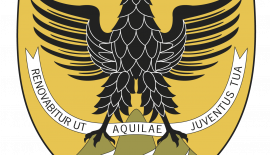Instructors
Emidio Di Giampaolo
Associate ProfessorCategories
ING-INF/02Description
Prerequisites
The student must know the theory of electromagnetic fields, transmission lines, field theory for guided waves, plane waves and electric circuits.
Contents
Antenna Fundamentals: basic antenna parameters, radiation pattern, radiation power density, radiation intensity, directivity, aperture concept, effective height, polarization, input impedance, radiation resistance, gain, radiation efficiency, beam width, bandwidth, near field and far field radiation, Friis transmission equation, dual equations for electric and magnetic current sources.
Antenna matching: power matching, uniformity matching, reflection coefficient, mismatch coefficient, depolarization coefficient.
Linear wire antennas: infinitesimal dipole, near field, far field, directivity, radiation from arbitrary current distribution, finite length dipole, half wave length dipole, Antenna impedance: experimental and theoretical considerations, method of moments, Hallen’s integral equation, coupled dipoles, mutual impedance, wire in front of metallic ground, monopole antennas, folded dipoles, biconical antennas, short dipole antenna. Baluns, T-match, gamma-match.
Arrays: linear arrays, planar arrays and circular arrays, principle of pattern multiplication, uniform one-dimensional arrays, broadside, endfire, radiation pattern, directivity, beamwidth and null directions, array factor. Parasitic array: Yagi-Uda antenna.
Frequency Independent and Self Complementary Antennas: log periodic, spiral antennas.
Microstrip antennas: Rectangular patch.
Aperture Type Antennas: radiation from planar aperture, the Fourier transform method, application of the field-equivalence principles to aperture radiation, radiation from rectangular aperture, uniform aperture field with a linear phase variation, tapered aperture field, open rectangular waveguide, horn antennas, E-plane horn, H-plane horn, pyramidal horn.
Reflector Antennas: paraboloidal reflector antennas, aperture efficiency, directivity, basic of offset paraboloidal reflectors, dual reflector antenna systems, shaped dual reflector systems.
Microwave circuit: power, energy and attenuation of modes in waveguides, actual conductors losses and surface impedance, coaxial cable, planar guiding structures, microstrip, basics of resonant cavity, microwave junctions, reciprocal and lossless junctions, scattering matrix, one-port and two-port junctions.
Scattering from an antenna, Radio Frequency Identification systems, modo struttura, modo antenna.
Exercitations: design and analysis of some models of antennas by means of electromagnetics CAD.
Laboratory Activity: measurements of return loss and insertion loss of some antennas and microwave circuits.
Assessment methods
Written and oral exam. A report is required for the laboratory activity.

